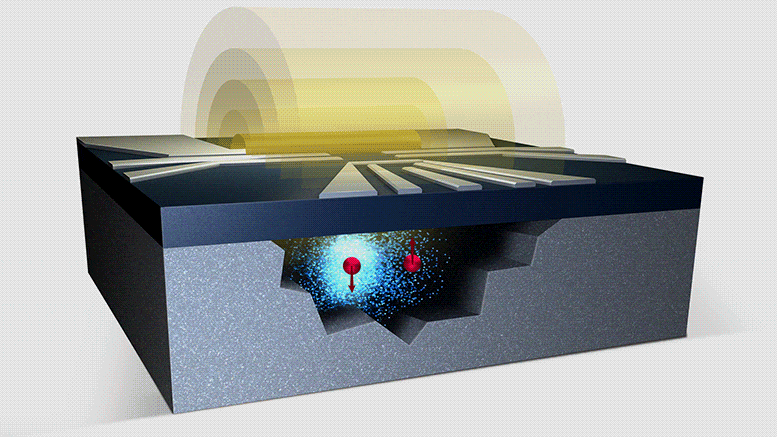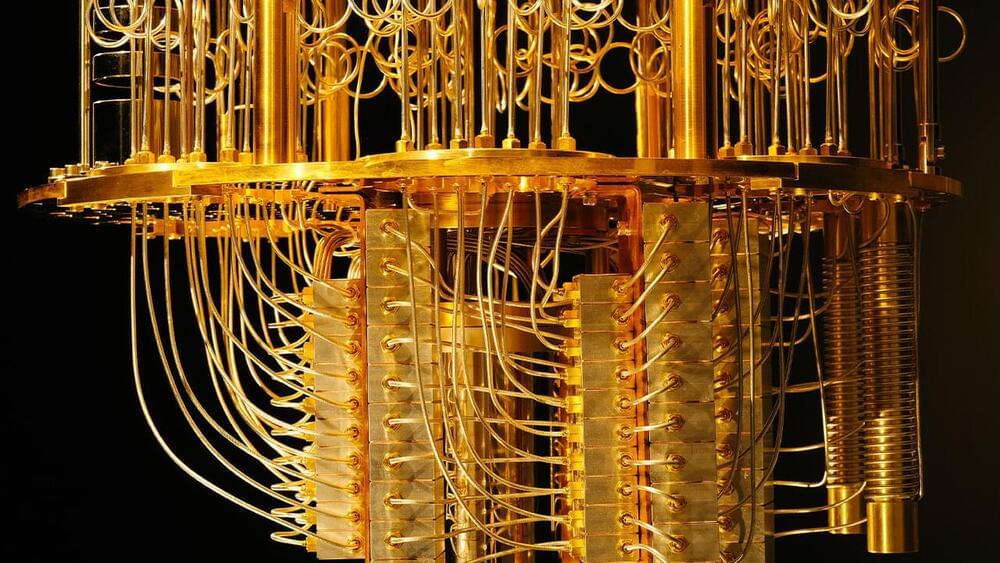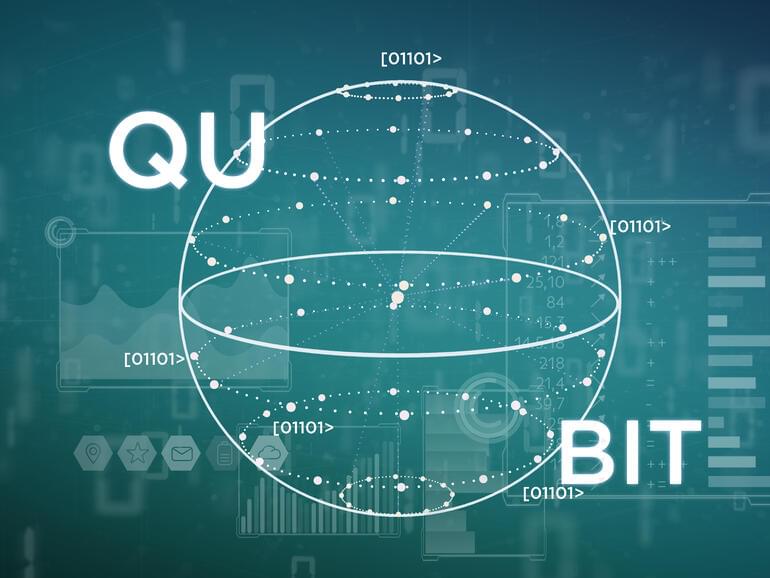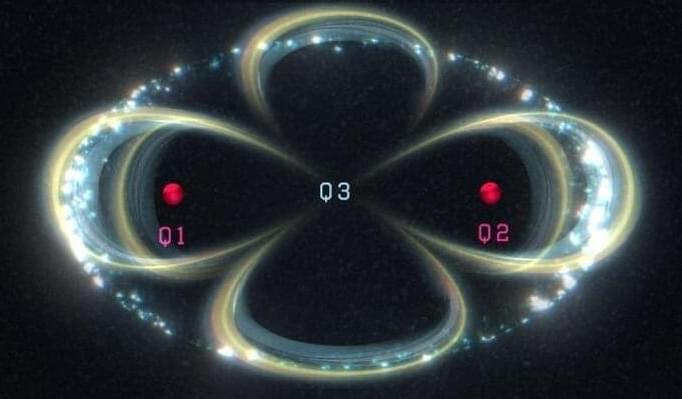Sam Zeloof combines 1970s-era machines with homemade designs. His creations show what’s possible for small-scale silicon tinkerers.
Category: computing – Page 616

Major Breakthrough As Quantum Computing in Silicon Hits 99% Accuracy
UNSW Sydney-led research paves the way for large silicon-based quantum processors for real-world manufacturing and application.
Australian researchers have proven that near error-free quantum computing is possible, paving the way to build silicon-based quantum devices compatible with current semiconductor manufacturing technology.
“Today’s publication in Nature shows our operations were 99 percent error-free,” says Professor Andrea Morello of UNSW, who led the work.
Quantum computing in silicon hits 99% accuracy
UNSW Sydney-led research paves the way for large silicon-based quantum processors for real-world manufacturing and application.
Australian researchers have proven that near error-free quantum computing is possible, paving the way to build silicon-based quantum devices compatible with current semiconductor manufacturing technology.
“Today’s publication in Nature shows our operations were 99 percent error-free,” says Professor Andrea Morello of UNSW, who led the work.

A language for Quantum computing
Time crystals. Microwaves. Diamonds. What do these three disparate things have in common?
Quantum computing. Unlike traditional computers that use bits, quantum computers use qubits to encode information as zeros or ones, or both at the same time. Coupled with a cocktail of forces from quantum physics, these fridge-sized machines can process a whole lot of information – but they’re far from flawless. Just like our regular computers, we need to have the right programming languages to properly compute on quantum computers.
Programming quantum computers requires awareness of something called “entanglement”, a computational multiplier for qubits of sorts, which translates to a lot of power. When two qubits are entangled, actions on one qubit can change the value of the other even when they are physically separated, giving rise to Einstein’s characterization of “spooky action at a distance.” But that potency is equal parts a source of weakness. When programming, discarding one qubit without being mindful of its entanglement with another qubit can destroy the data stored in the other, jeopardizing the correctness of the program.

Scientists achieve key elements for fault-tolerant quantum computation in silicon spin qubits
Researchers from RIKEN and QuTech—a collaboration between TU Delft and the Netherlands Organisation for Applied Scientific Research (TNO)— have achieved a key milestone toward the development of a fault-tolerant quantum computer. They were able to demonstrate a two-qubit gate fidelity of 99.5 percent—higher than the 99 percent considered to be the threshold for building fault-tolerant computers—using electron spin qubits in silicon, which are promising for large-scale quantum computers as the nanofabrication technology for building them already exists. This study was published in Nature.
The world is currently in a race to develop large-scale quantum computers that could vastly outperform classical computers in certain areas. However, these efforts have been hindered by a number of factors, including in particular the problem of decoherence, or noise generated in the qubits. This problem becomes more serious with the number of qubits, hampering scaling up. In order to achieve a large-scale computer that could be used for useful applications, it is believed that a two-qubit gate fidelity of at least 99 percent to implement the surface code for error correction is required. This has been achieved in certain types of computers, using qubits based on superconducting circuits, trapped ions, and nitrogen-vacancy centers in diamond, but these are hard to scale up to the millions of qubits required to implement practical quantum computation with an error correction.
To address these problems, the group decided to experiment with a quantum dot structure that was nanofabricated on a strained silicon/silicon germanium quantum well substrate, using a controlled-NOT (CNOT) gate. In previous experiments, the gate fidelity was limited due to slow gate speed. To improve the gate speed, they carefully designed the device and tuned it by applying different voltages to the gate electrodes. This combined an established fast single-spin rotation technique using micromagnets with large two-qubit coupling. The result was a gate speed that was 10 times better than previous attempts. Interestingly, although it had been thought that increasing gate speed would always lead to better fidelity, they found that there was a limit beyond which increasing the speed actually made the fidelity worse.

Quantum startups Pasqal and Qu&Co merge and promise 1,000 qubits by 2023
Hardware company uses neutral atom design while algorithm experts integrate quantum algorithms into existing software platforms.
Pasqal is combining its neutral atom-based hardware with Qu&Co’s algorithm portfolio to launch a combined quantum computing company based in Paris with operations in seven countries. The companies announced the merger Tuesday, Jan. 11.
How To Build The Universe in a Computer
This series is absolutely fantastic. Especially for Transhumanist non-astrophysicists like me!
Thank you to Wren for supporting PBS. To learn more, go to https://wren.co/start/spacetime.
PBS Member Stations rely on viewers like you. To support your local station, go to: http://to.pbs.org/DonateSPACE
Sign Up on Patreon to get access to the Space Time Discord!
https://www.patreon.com/pbsspacetime.
We routinely simulate the universe on all of its scales, from planets to large fractions of the cosmos. Today we’re going to see how it’s possible to build a universe in a computer — and see whether there’s a limit to what we can simulate.

In a Historic Milestone, Silicon Quantum Computing Just Exceeded 99% Accuracy
A major milestone has just been reached in quantum computing.
Three separate teams around the world have passed the 99 percent accuracy threshold for silicon-based quantum computing, placing error-free quantum operations within tantalizing grasp.
In Australia, a team led by physicist Andrea Morello of the University of New South Wales achieved 99.95 percent accuracy with one-qubit operations, and 99.37 percent for two-qubit operations in a three-qubit system.
Arduino Meets Quantum Computer
| Hackaday
Quantum computers aren’t quite ready for the home lab, but since there are ways to connect to some over the Internet, you can experiment with them more easily than you might think. [Norbert] decided to interface a giant quantum computer to an ordinary Arduino. Why? Well, that isn’t necessarily clear, but then again, why not? He explains basic quantum computing and shows his setup in the video below.
Using the IBM quantum computer and the open source Qiskit makes it relatively easy, with the Python code he’s using on the PC acting as a link between the Arduino and the IBM computer. Of course, you can also use simulation instead of using the real hardware, and for such a simple project it probably doesn’t matter.
Granted, the demo is pretty trivial, lighting an LED with the state of qubit. But the technique might be useful if you wanted to, say, gather information from the real world into a quantum computer. You have to start somewhere.
